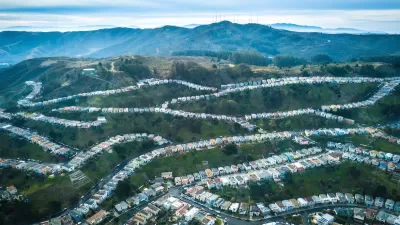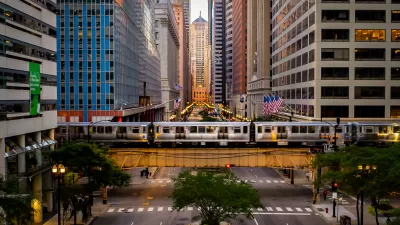The battles in New York and San Francisco have cities like Sacramento preparing for the growth of the home-sharing economy.

As Allen Young reports, the growing popularity of Airbnb in destination cities has "pitted landlords and other online home-sharing services against hotel unions, housing advocates and community groups." Anticipating a crackdown across the state, Airbnb reportedly approached Sacramento about reconsidering the legal terms surrounding short-term housing rentals. As in most cities, it is currently illegal in Sacramento to provide short-term lodging without a permit and without paying the same transient-occupancy taxes that conventional hotels pay. There are currently approximately 170 properties listed within the city, and more are expected as the sharing economy grows in popularity.
City officials first began considering writing rules around Airbnb use after the San Francisco-based company approached Sacramento to help legitimize its service," Young reports. The city's proposed cap on nightly stays was initially 30 days per year, relatively strict compared to cities like San Francisco and San Jose, with 90-day and 180-day caps, respectively. The purpose of a cap is to prevent landlords and homeowners from operating full-time hotels. Supporters of a cap argue that the proliferation of Airbnb rentals is reducing the availability of affordable housing in cities that are already struggling with soaring housing costs.
The proposal would likely include a transient-occupancy tax. Supporters argue that short-term renters should be required to pay the same taxes as other visitors who stay in hotels. According to their website, Airbnb collects local hotel taxes from renters in a limited number of cities that require it. In California, these include Oakland, San Francisco, Malibu, Palo Alto, San Diego, and San Jose. The local hotel tax in Sacramento is currently 12 percent.
FULL STORY: How Sacramento’s Airbnb proposal stacks up against other cities

Depopulation Patterns Get Weird
A recent ranking of “declining” cities heavily features some of the most expensive cities in the country — including New York City and a half-dozen in the San Francisco Bay Area.

California Exodus: Population Drops Below 39 Million
Never mind the 40 million that demographers predicted the Golden State would reach by 2018. The state's population dipped below 39 million to 38.965 million last July, according to Census data released in March, the lowest since 2015.

Chicago to Turn High-Rise Offices into Housing
Four commercial buildings in the Chicago Loop have been approved for redevelopment into housing in a bid to revitalize the city’s downtown post-pandemic.

How Financing Restricts the Rental Housing Market
The way apartment buildings are financed has a major impact on supply and costs.

Houston Mayor Pauses Complete Streets Projects
The move raises concerns among road safety advocates who point out that traffic deaths continue to rise.

Twin Cities Trains Move to Fewer Cars, Higher Frequency
Headways will drop from 15 minutes to 12 minutes.
Licking County
Barrett Planning Group LLC
City of Cleburne
HUD's Office of Policy Development and Research
Mpact Transit + Community
HUD's Office of Policy Development and Research
City of Universal City TX
ULI Northwest Arkansas
City of Laramie, Wyoming
Urban Design for Planners 1: Software Tools
This six-course series explores essential urban design concepts using open source software and equips planners with the tools they need to participate fully in the urban design process.
Planning for Universal Design
Learn the tools for implementing Universal Design in planning regulations.






















